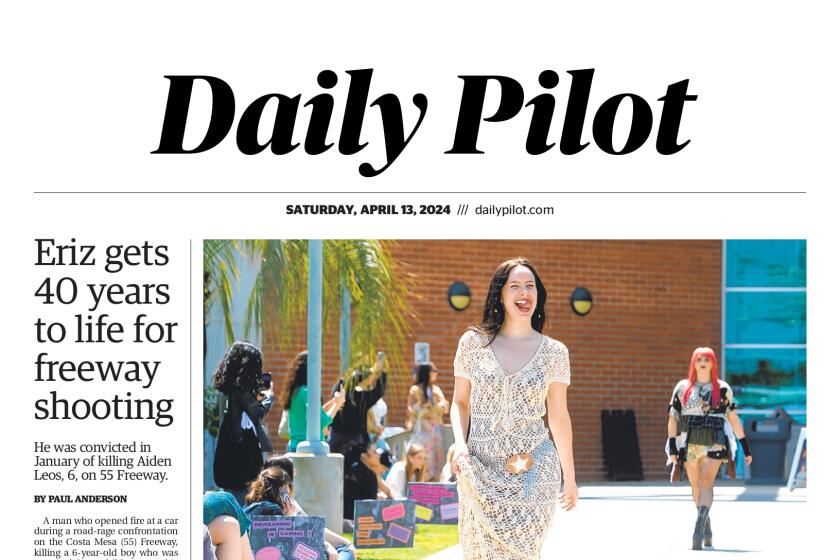Ex-library clerk could get jury trial
A wrongful-termination claim filed by a former Huntington Beach city employee who is deaf could go to a jury trial early next year.
The former library clerk contends that the city failed to provide her with a qualified sign-language interpreter before she was forced to resign three years ago. A mandatory settlement conference is set to take place Friday.
Plaintiff Merrie Sager worked at a city library from 1978 to August 2010.
Her lawyer, William Crosby, said the woman, who is deaf and has cerebral palsy, was forced to resign without cause.
The resignation followed an incident in which Sager allegedly threw a book and yelled at and gestured toward a co-worker.
Crosby said her client did not throw the book at the co-worker but in fact threw it down and said, “I give up.”
Sager filed a legal claim in 2011 stating that the city did not provide her with a qualified sign-language interpreter. The claim further alleged that the city retaliated against her because she had asked repeatedly for an interpreter. Sager has since dropped that portion of the claim.
The issue surfaced in Orange County Superior Court on Friday with a motion by the city for a summary judgment — when a claim can be decided based on legal arguments and without going to trial.
Judge Thierry Colaw denied the motion, ruling that there are triable issues regarding whether Sager’s employers “at all times offered [her] reasonable accommodations and whether the city engaged in the interactive process timely and in good faith following [her] requests for a qualified interpreter.”
On Thursday, the judge ruled the issue of disability discrimination could be tried in court, according to Sager’s attorney.
City Attorney Jennifer McGrath declined to comment.
In arguing against the city’s motion, Crosby wrote that his client was provoked into acting out because of the city’s failure to provide Sager with “a qualified American Sign Language interpreter to assist her in communicating with her supervisors and fellow employees and participating in meetings.”
“Because of this failure to provide reasonable accommodation, as required by law, Ms. Sager experienced emotional damage from extreme isolation for many years,” Crosby wrote. “Further, [the] defendant’s failure to attempt to improve communication with [the] plaintiff resulted in her wrongful constructive termination.”
Crosby said all of this could have been avoided if the city supplied Sager with a qualified American Sign Language interpreter.
Colaw wrote in his ruling that the city showed evidence of providing Sager with interpreters, such as a job coach for the developmentally disabled, Sager’s sister and various employees who would write her notes or use hand gestures.
Crosby claims that neither Sager’s sister nor the other employees were qualified ASL interpreters and were ineffective in their communication. He also said the job coach had his hours cut, and the city eventually stopped arranging for him to come.
But the city argues that such an interpreter isn’t defined by the Fair Employment and Housing Act and that Sager’s sister “was probably the most ‘qualified’ to interpret for [the] plaintiff,” Colaw wrote.
During the mandatory settlement conference, the case could be moved to a jury trail, tentatively scheduled for Jan. 27.
All the latest on Orange County from Orange County.
Get our free TimesOC newsletter.
You may occasionally receive promotional content from the Daily Pilot.



